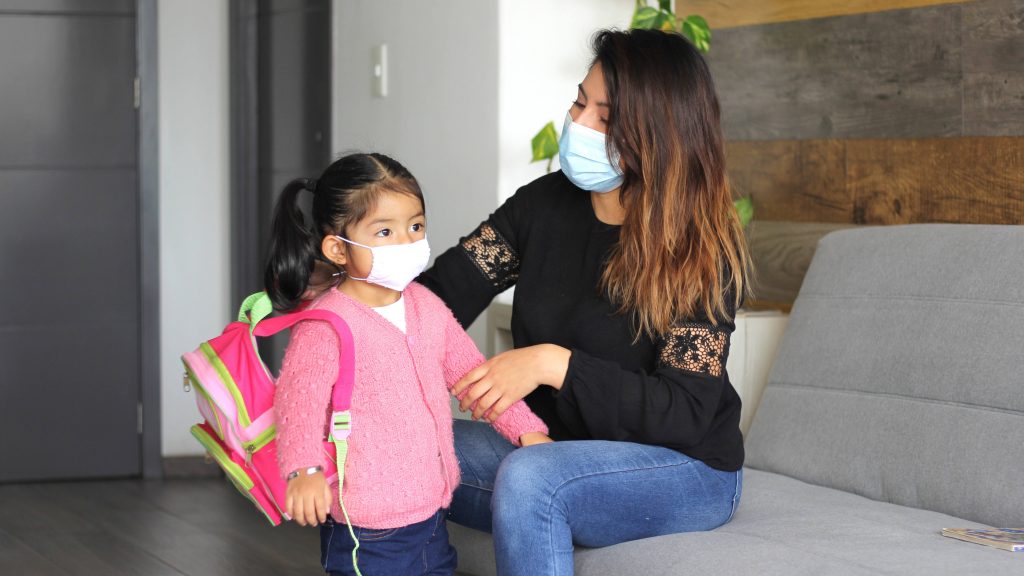
The COVID-19 pandemic has been a stressful time for many families. Each of your family members, including your children, likely has had many changes to daily routines in recent weeks or months. This can be troubling to children and disrupt the family. One part of the pandemic that could cause children to be upset is if they need a COVID-19 test.
This article is written by Dr. Jennifer Brumm, a Mayo Clinic Health System pediatrician in La Crosse, Wisconsin.
____________________________
The good news is that there are things that you can do as a parent or caregiver to ease some potential fear and anxiety. When children are prepared to take a medical test, they are more cooperative and comfortable.
Here are a few recommendations to help prepare your children for a COVID-19 test:
Define new terms
It's important that your children have a basic understanding of what COVID-19 is and why they need to be tested. Take time to explain COVID-19 in kid-friendly terms.
Here's how I describe it when talking with kids:
You may have heard adults talking about COVID-19. It's a virus, like a germ, and it is so tiny that we can't see it with our eyes. Some people who get this virus can have a fever or a cough, and may feel achy and tired, while some people can have this virus and not feel sick at all. The only way to know for sure if you have the virus in your body is to get a test. This helps your doctor and parents know the best way take care of you.
Explain what they will see
When your children get tested, the health care team will be wearing more protective clothing than previous visits.
Here's how I explain that:
Health care team members will wear gloves on their hands, a mask over their mouth and a clear plastic shield to protect their eyes. They are wearing these things to protect you, me and themselves from spreading germs. Watch their eyes and let me know when they smile because the shape of their eyes change.
Explain test process
How you describe the testing process depends on the age of your children. For young and school-age children, I recommend that parents describe it as touching the inside of the back of your nose with a long, skinny cotton swab.
Here's how I explain it:
During the test, the health care provider will put a long, skinny cotton swap far into your nose for a few seconds to collect a sample. While this happens, it may tickle or feel uncomfortable, and you might feel like you want to push the cotton swab away. You have a very important job. You need to stay as still as possible, like a statue, during the test.
It may help your children to practice so you can positively reinforce good behaviors before going to the clinic. Encourage your children to lean back, hold your hand and count slowing to five while remaining still.
Comfort during test
It's important that your children feel secure during a COVID-19 test, so reassure them that you will remain by their side during the test. In addition to your presence, your children can bring a comfort item to the test, such as a favorite stuffed animal or blanket. Some kids and teens like to do something during the test to help them relax. This may include counting, breathing in and out slowly, and listening to music.
In addition to talking with your children, watch this Mayo Clinic video to help them feel more comfortable and confident for their COVID-19 test:
Learn more about children and COVID-19:
- Learn why it's important to keep on schedule with childhood vaccines during the COVID-19 pandemic.
- Read a list of things to consider as you complete your back-to-school checklist.
- Discover how to head back to school with 4 Be's for mental health.
- Learn strategies for talking to kids about COVID-19 and coping.
Information in this post was accurate at the time of its posting. Due to the fluid nature of the COVID-19 pandemic, scientific understanding, along with guidelines and recommendations, may have changed since the original publication date.
Check the Centers for Disease Control and Prevention website for additional updates on COVID-19. For more information and all your COVID-19 coverage, go to the Mayo Clinic News Network and mayoclinic.org.







